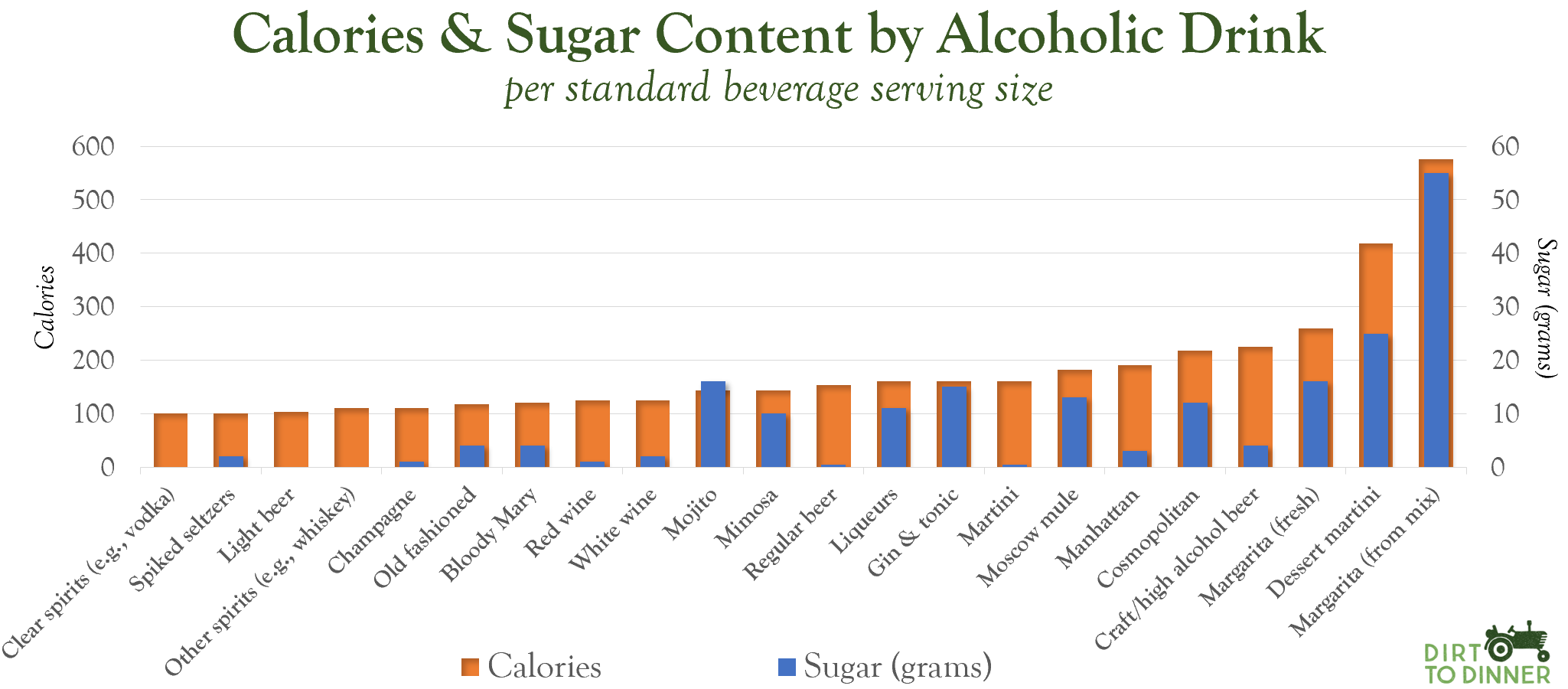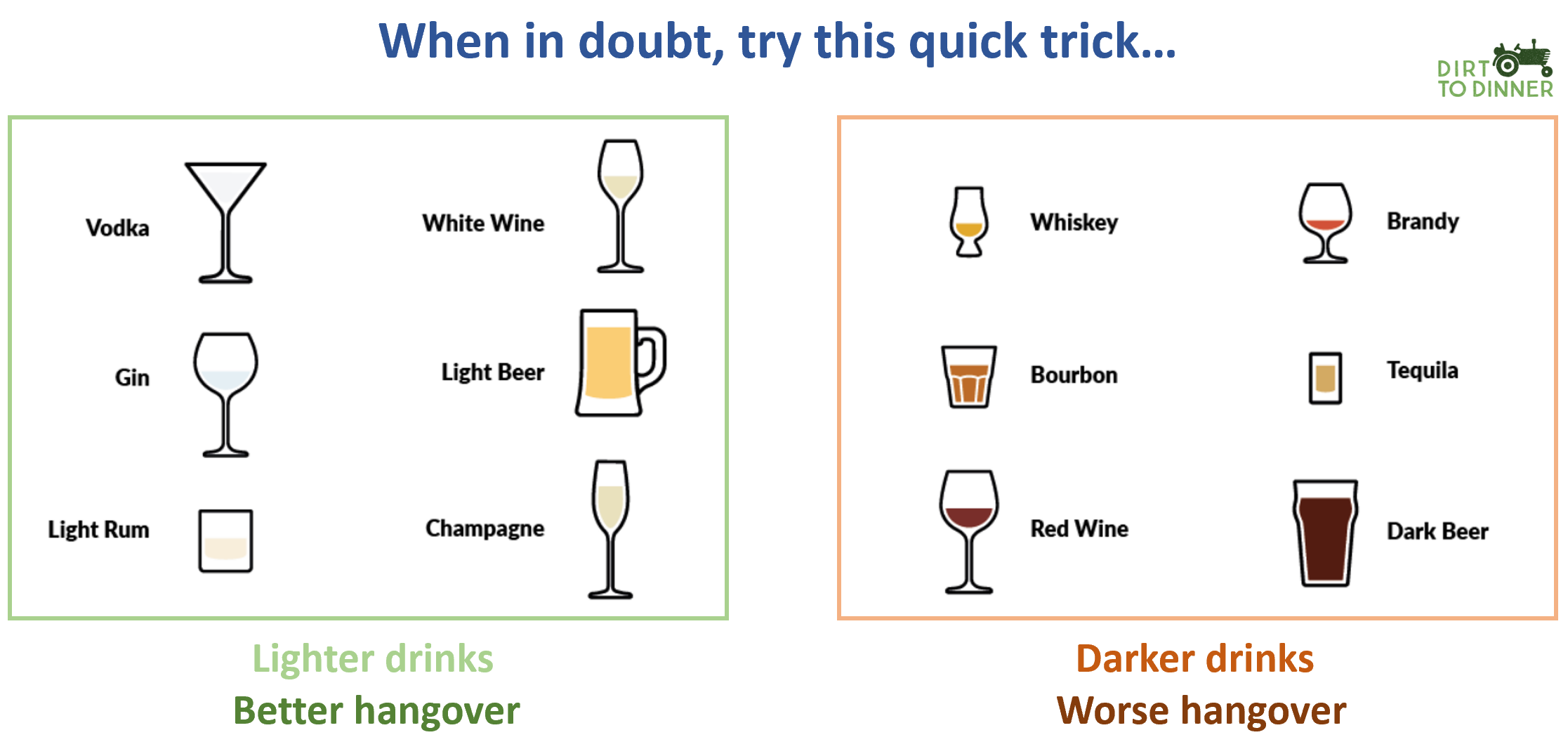Alcohol’s impact on our health
The Dirt
As the holiday season approaches, we often find ourselves surrounded by festive gatherings and celebrations, many of which include alcoholic beverages. While enjoying a drink can be fun, it’s essential to understand how alcohol impacts our health so we can make informed decisions and enjoy drinking responsibly, or choose to enjoy mocktails and other non-alcoholic drinks instead.
Nutrition
Alcohol’s impact on our health
The Dirt
As the holiday season approaches, we often find ourselves surrounded by festive gatherings and celebrations, many of which include alcoholic beverages. While enjoying a drink can be fun, it’s essential to understand how alcohol impacts our health so we can make informed decisions and enjoy drinking responsibly, or choose to enjoy mocktails and other non-alcoholic drinks instead.
With cold weather rolling in and the holidays quickly approaching, many of us find a festive cocktail or a glass of wine in our hands more frequently.
But there’s no getting around it: alcohol is just not good for you. Everything we have studied about alcohol is that, while fun, it is detrimental to our health. So how do we have a fun and festive holiday season but still respect and nurture our bodies?
Here’s a breakdown of the latest research and tips to help you navigate the season with both fun and wellness in mind.
Trends in drinking habits
Drinking patterns vary significantly across different demographics and age groups.
While some older generations continue to consume alcohol at consistent levels, younger generations are redefining social norms around drinking. Recent data shows that Millennials and Gen Z are leading a shift toward reduced alcohol consumption, with many opting for alcohol-free lifestyles. This trend is driven by increased awareness of the health impacts of alcohol, the popularity of mocktails, and a desire for a more balanced lifestyle.
However, alcohol consumption remains high in certain segments. According to the National Institute on Alcohol Abuse and Alcoholism (NIAAA), binge drinking among adults aged 25-34 continues to be a concern, accounting for a significant proportion of alcohol-related hospital admissions. In contrast, the rise of sober-curious movements and wellness-focused lifestyles has created opportunities for non-alcoholic beverages to thrive.
Interestingly, regional and cultural differences also play a role. In urban areas, where wellness trends are more prevalent, alcohol consumption has seen a steady decline. Meanwhile, rural areas may still report higher overall consumption levels, linked to cultural and social norms. As we approach the “booziest” time of the year, these shifting dynamics highlight the importance of understanding how alcohol affects our bodies and minds—and making choices that align with our personal goals and values.
Define your drinking
There are ways you can mitigate the effects so they are not so damaging to your brain and body. Awareness is the first step to having responsible fun. Therefore, the first step is to assess your drinking habits.
How many drinks do you consume per week? Are you in the high range (14 or more drinks weekly) or in the low-to-moderate range (less than 7 drinks)?
Then closely examine your drinking patterns. Be sure to take a good, close look at your habits when considering these patterns:
- Binge Drinking: Drinking heavily within two hours; this is defined by 5 drinks for men and 4 drinks for women during that time period. Packing your weekly limit into a few nights, such as weekends, can have more damaging effects to your brain, your liver, your gut, your hormones, and your heart rate variability. Generally, this pattern is not ideal for short-term and long-term health.
- Moderate Drinking: Consuming 2 drinks a day for men, one drink for women. Spreading out one to two drinks over the week is less harmful to your body and brain.
“An investment in knowledge pays the best interest.”
– Benjamin Franklin
Alcohol’s impact on the body
Despite your current drinking habits, it’s important to be aware of alcohol’s deleterious effects on the functioning and health throughout various organs and systems in your body.
The Brain
Alcohol’s effects on the brain are profound and multifaceted.
Research indicates that alcohol disrupts the prefrontal cortex, a region responsible for decision-making, impulse control, and memory. This disruption leads to temporary rewiring, manifesting as impulsivity, poor judgment, and memory lapses—symptoms commonly associated with intoxication.
Here is a great video to show what goes on in the body after drinking:
Chronic alcohol use exacerbates these effects, causing long-term alterations in neural circuitry. Studies published in journals like Nature Neuroscience and The Journal of Neuroscience reveal that even moderate alcohol consumption can impair the growth of new neurons in the hippocampus, the brain’s memory center.
However, abstinence for two to six months can promote partial recovery, allowing the brain to regain some of its functionality. Alcohol also increases levels of acetaldehyde, a toxic byproduct of alcohol metabolism. Acetaldehyde disrupts neural signaling, contributing to the feeling of being “drunk.”
Furthermore, regular alcohol consumption can lead to an overactivation of the brain’s reward system, creating a cycle of dependence by altering dopamine pathways. This phenomenon explains why habitual drinking can make it harder to quit.
“Being drunk is a poison-induced disruption in neural circuitry caused by acetyl aldehyde as the alcohol is being metabolized.”
– Dr. Andrew Huberman, Ph.D.
Hormones
Alcohol increases cortisol levels, contributing to stress and inflammation.
Elevated cortisol has been linked to chronic health conditions such as hypertension and anxiety (Journal of Clinical Endocrinology & Metabolism). Furthermore, alcohol disrupts serotonin levels, which affects mood regulation and can exacerbate conditions like depression.
Research in Alcohol Research & Health highlights that even moderate drinking alters the balance of estrogen and testosterone, accelerating the conversion of testosterone to estrogen. This imbalance can lead to gynecomastia in men and increase the risk of hormone-sensitive cancers in women, such as breast cancer.
The Gut
Alcohol disrupts the gut-liver-brain axis, which is critical for overall health.
According to studies in Gut Microbes and Nature Reviews Gastroenterology & Hepatology, alcohol consumption alters the gut microbiota, reducing the diversity of beneficial bacteria. This disruption contributes to leaky gut syndrome, where toxins and bacteria pass through the intestinal lining into the bloodstream, leading to systemic inflammation.
Chronic alcohol use is also associated with reduced production of short-chain fatty acids (SCFAs), which play a key role in maintaining gut health and reducing inflammation. Supplementing with probiotics and dietary fiber has been shown in clinical trials to partially restore gut microbiome health after alcohol-induced damage.
Practicing mindful consumption
Here are a few options — with and without alcohol — to keep in mind at your next gathering:
Jump on the mocktail trend
The market for non-alcoholic alternatives is on the rise. These products are in particular demand among adults under 45 years old. According to Food Business News, this segment is growing to over $11 billion, as 69% of alcohol users — 81% of GenZ consumers and 78% of millennials — are considering trying a sober experience.

Mocktails not only save you from the adverse effects of alcohol, but also offer a hydrating and flavorful option to enjoy. And the good news is that the alternatives to alcohol are much more interesting than plain soda with lime.
Functional cocktails are non-alcoholic and have specific health benefits. Some drinks even include adaptogens, such as ashwagandha, lion’s mane, and cordyceps. Others including anti-inflammatory ingredients, like caffeine, ginger, and other additives.
Some popular mocktail recipes include:
- Cucumber Mint Spritzer: Fresh cucumber juice, muddled mint, sparkling water, and a splash of lime
- Cranberry Ginger Mule: Cranberry juice, ginger beer, and a squeeze of fresh orange
- Tropical Paradise: Coconut water, pineapple juice, and a dash of grenadine
Consider your beverage of choice
Despite the evidence showing how unhealthy alcohol is for proper functioning of our body, we also know there will be times where we want to celebrate with a a drink.
The type of alcohol you consume matters. For instance, red wine contains antioxidants like resveratrol, which can promote heart health. Yet you would have to drink quite a lot to get those benefits – and defeat the ‘healthy’ purpose.
However, all alcohol is calorie-dense and provides no essential nutrients, often leading to poor dietary cravings, like late-night snacking. You can use this chart below to quickly determine your next drink when put on the spot.
Quick tip: avoid darker liquors like bourbon, which contain higher levels of congeners that worsen hangovers.
Some practical hangover tips to reduce recovery include:
One of the most dreaded aspects of drinking is the hangover. Poor sleep, dehydration, and inflammation all play a role. Try to implement these tips to reduce that dreaded feeling:
- Staying hydrated by alternating water with alcoholic beverages
- Consuming a nutritious, protein-rich meal before drinking
- Avoiding sugary drinks that sneak in excessive amounts of calories

What do you do if it’s too late and you’re waking up to a tough morning? Consider drinking lots of water, taking electrolytes with vitamin B and C, exercising, and consuming good, old-fashioned chicken soup to move on with your day.
Other hangover hacks
Another option for feeling better in the morning? This is where ZBiotics comes in. ZBiotics is a probiotic drink scientifically designed to help your body process alcohol by breaking down acetaldehyde, a toxic byproduct of alcohol metabolism.
Drinking ZBiotics 30 minutes before and after consuming alcohol can reduce the severity of hangover symptoms, allowing you to recover more quickly.
Key takeaways
As you head into the holiday season, here are some tips to keep in mind:
- Limit Your Intake: Aim for no more than 4 drinks per week to minimize health risks
- Be Selective: Choose lower-sugar options and avoid calorie-laden cocktails
- Prep Your Body: Stay hydrated, eat a balanced meal beforehand, and consider supplements like folate or B12 or Zbiotics
- Take Breaks: Allow your body time to recover by incorporating alcohol-free days into your routine
- Try Mocktails: Elevate your celebrations with alcohol-free alternatives that are both fun and healthy
The Bottom Line
Drinking alcohol can be an enjoyable part of socializing, but it’s important to stay mindful of its effects on your health. By making informed choices, trying alternatives like flavorful and nutrient-rich mocktails, and practicing moderation, you can balance fun and wellness this holiday season. Cheers to a happy and healthy celebration!








